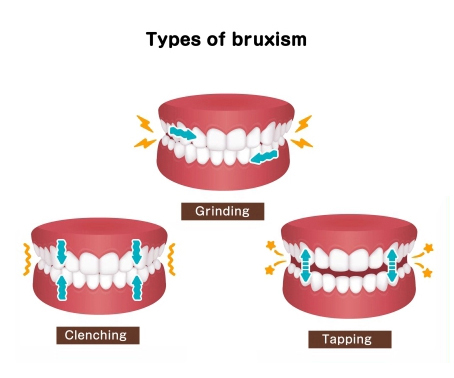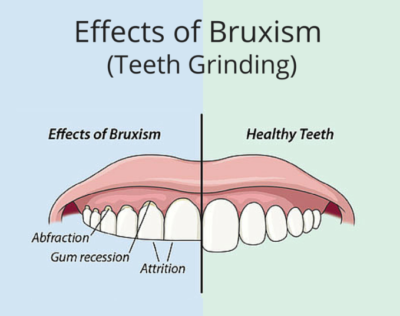A Michigan splint or Tanner splint is a type of mouth guard that is prescribed for patients suffering from tooth grinding or jaw clenching.
This appliance is tailor-made and customised to each individual’s exact requirements. The splint is made from hard acrylic and fits normally over the lower or upper teeth biting surface. As well as protecting the teeth from tooth wear and damage, it can minimise teeth clenching and grinding. In addition to these benefits, it can also protect teeth that have crowns or large fillings present from fracture. You will need a dedicated measuring, fitting and sometimes, adjusting, session with Dr Raza.

How does a Michigan and Tanner splint work?
It covers the biting surface of the teeth. While doing this, its design ensures that there is an even contact when the teeth come together. This reduces pressure build-up and can help improve jaw pain, headaches, mouth opening restriction and other symptoms associated with Temporomandibular Disorders (TMD). Muscle activity in the jaw can also be reduced when wearing the splint. Wearing the splint does not make permanent changes to muscles or jaw. It does not change your bite.

When to wear and how to maintain your Michigan/Tanner splint
The splint is usually worn at night when sleeping. This is because many people clench or grind their teeth in their sleep without even realising. It may feel tight initially, but this will improve with use.
- Ensure your teeth are very clean before fitting the splint. If food or plaque is left under the appliance, you are at an increased risk of tooth decay or gum disease.
- Do not consume food or drink (other than water) once your splint is in place.
- Make sure you fit your splint correctly, ensure it clicks securely over your teeth.
- In the morning remove your splint, rinse under cold water, clean it thoroughly with a soft toothbrush and soap over a basin of water.
- Clean your splint container as it can harbour bacteria over time.
- Do not use toothpaste or hot water as this can scratch or change the shape of the splint.
- Store dry in a safe place – away from pets and children.
- Once a week place the appliance in mild sterilisation solution made for retainers or dentures (e.g., Retainer Brite or Steradent).
What is the difference between Tanner and Michigan splints?
A Tanner mouthguard is worn on the bottom arch, whereas a Michigan mouthguard is worn on the top arch. Both types of splints/mouthguards are otherwise identical and work in the same way.
What makes Michigan and Tanner splints different from soft splints?
A soft splint is made from soft acrylic and is easier to manufacture and fit. We do not recommend soft splints because they can make clenching and grinding worse by providing a soft chewy surface to chew on when worn. Michigan and Tanner splints, on the other hand are made from much harder acrylic which holds the “bite” in a way that it becomes impossible to clench/grind/chew. It is less likely to be worn down. Is more complex to be constructed and needs a dedicated adjusting/fitting appointment with an experienced clinician.
What does a Michigan splint and Tanner splint cost?
Both Michigan and Tanner splints costs £795 to manufacture and fit. They are custom built in a laboratory specialising in therapeutic appliances. An experienced clinician first takes measurements and a 3D scan to send to the laboratory. The appliance is ready in 14 days and an appointment is needed to correctly fit it to make sure that the resting bite is optimal.
Call our friendly team on 020 7584 5551 or email us at enquiries@londonsmiles.com
We also offer muscle relaxant (Botox) injections to alleviate the pain from Bruxism.





